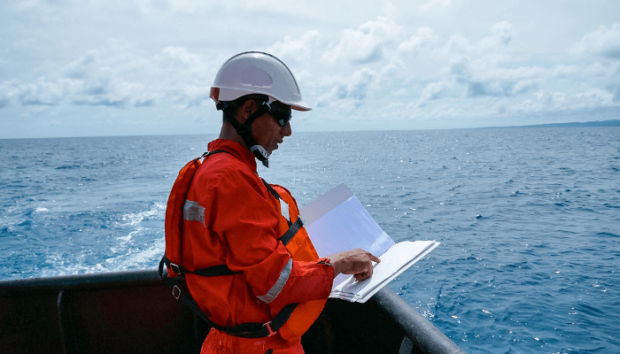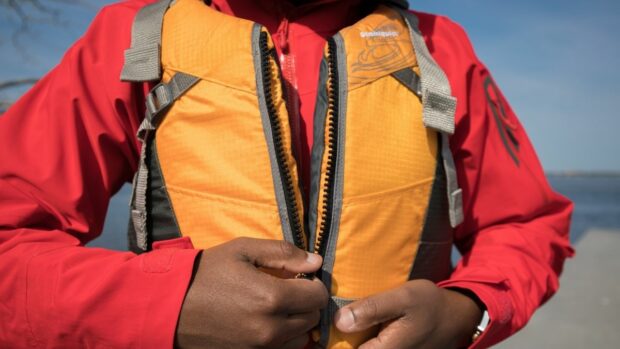What Are the Marine Safety Considerations You Should Know When Sailing?
Sailing, a pursuit that blends adventure with the tranquility of the sea, requires a keen understanding of marine safety.
Whether you’re an experienced sailor or a novice, the importance of safety on the water cannot be overstated.
Below we’ll talk about the essential marine safety considerations in sailing, highlighting the practices and preparations necessary to ensure a safe and enjoyable experience on the water.

Here’s what we want you to know:
The Impact of Weather on Sailing
One of the most critical aspects of marine safety is understanding and respecting the power of weather. Weather conditions can change rapidly on the water, transforming a calm sailing trip into a challenging ordeal. Before setting sail, it’s crucial to check weather forecasts, including wind speeds, wave heights, and the possibility of storms.
Modern technology offers various tools and apps that provide real-time weather updates, which are invaluable for sailors.
It’s also important to develop the ability to read the sky and sea. Changes in cloud formations, wind patterns, and ocean swells can indicate impending weather changes, allowing sailors to make informed decisions about seeking shelter or altering their course. Find out more here https://www.boatsnews.com/story/32537/what-precautions-should-be-taken-when-sailing-in-heavy-weather.
Preparing for Varied Sea Conditions
Sailing in different sea conditions requires specific skills and preparations. Calm waters are ideal for beginners, offering a safe environment to learn basic sailing techniques. However, rough seas demand experienced handling and quick decision-making.
Understanding how to adjust sails, balance the boat, and navigate through heavy waves is crucial. Regular practice in varied conditions, coupled with advanced sailing courses, can equip sailors with the necessary skills to handle their vessel safely in challenging conditions.
Essential Safety Gear
The significance of marine safety equipment cannot be overstated, folks. This equipment serves as a critical line of defense against the unpredictable nature of the sea, ensuring the safety and survival of everyone on board. Life jackets, flares, VHF radios, EPIRBs, and first-aid kits are not mere accessories but essential tools that can mean the difference between a minor mishap and a catastrophic emergency.
Regular inspection and familiarity with the use of this equipment are paramount, as these preparations equip sailors to effectively manage situations ranging from sudden weather changes to onboard injuries and distress scenarios.
Investing in and maintaining high-quality marine safety equipment is a fundamental aspect of responsible sailing, providing peace of mind and significantly enhancing the safety of maritime adventures. A good idea is to look into Universal Safety, among other online platforms, to discover more about the topic.
Preparing for Emergencies
Preparing for emergencies involves more than just having the right equipment; it requires a well-thought-out plan. This includes knowing how to send distress signals, understanding basic first aid, and being able to perform man-overboard procedures. Conducting regular drills for different emergency scenarios is an effective way to ensure that everyone on board can respond quickly and correctly in a crisis.

Mastering Navigation
Navigational skills are a cornerstone of safe sailing. This encompasses the ability to read charts, use a compass, and understand navigational markers. In today’s digital age, GPS systems and other electronic navigation tools have become indispensable.
However, reliance on technology can be risky, as equipment can fail. Therefore, it’s crucial for sailors to also possess traditional navigational skills. Being able to navigate by the stars or by using a paper chart and compass ensures that you can always find your way, even if technology lets you down.
Understanding Local Conditions
Each sailing area has its unique characteristics and challenges. Currents, tides, underwater hazards, and local traffic regulations can vary significantly from one location to another. Familiarizing yourself with local conditions and regulations is crucial.
This might involve studying charts of the area, consulting local sailing guides, or seeking advice from experienced local sailors. Being aware of the specific challenges of your sailing area can prevent accidents and ensure a smoother sailing experience. Read more here.
The Importance of Communication
Effective communication is essential in ensuring safety at sea. This includes communicating your sailing plans to someone onshore. Before departure, inform a responsible person about your intended route, expected return time, and the names of all passengers. This ensures that in the event of an emergency, rescue services have vital information to aid in their search.
Strategic Planning
Strategic planning involves more than just plotting a course. It includes preparing for different eventualities, such as changes in weather or potential delays. Having contingency plans for different scenarios ensures that you’re not caught off guard. This planning should also include provisioning with sufficient food, water, and fuel, and considering the physical and mental preparedness of all passengers, especially on longer voyages.
Building Sailing Competency
Sailing is a skill that requires continuous learning and practice. Regularly participating in sailing courses, staying updated on sailing techniques, and practicing in different conditions are vital for building competency. It’s also important to understand your limitations and not push beyond your skill level, especially in challenging conditions.
